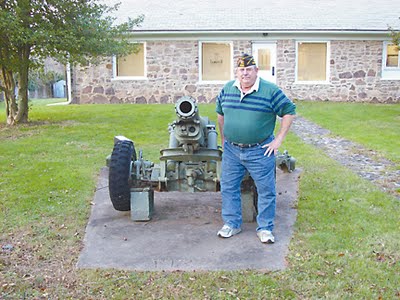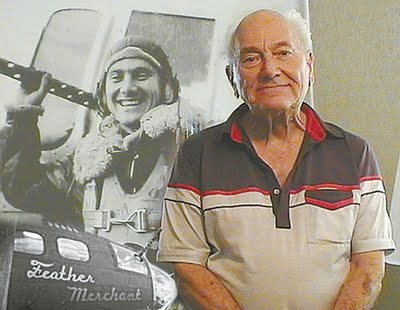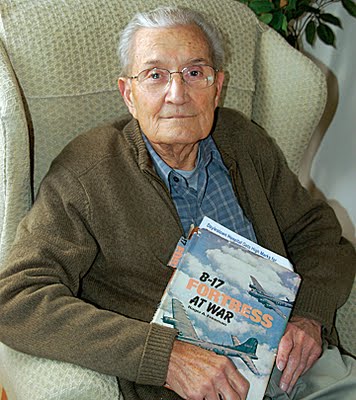Rich McCune
Penn State linebacker was drafted into the Marines.
By Matthew Fleishman, BucksLocalNews.com

Rich McCune was on the fast track to becoming a middle linebacker for Joe Paterno’s Penn State Nittany Lions when his birthday was selected seventh in the Vietnam War draft lottery in November 1969.
“I was red-shirted that season, but when my birthday was selected, me and a million other guys were drafted, and I wound up in the United States Marine Corps as a teenager,” said McCune. “I spent 20 years in the military, but honest to God, I wish I could have played football for Joe Pa.”
However, because McCune’s brother was sent to Vietnam just before he was set for deployment, McCune did not go to Vietnam. Instead, he spent the next four years in the Marines, serving in Guam, Japan, Guantanamo Bay, and in the Mediterranean Sea.
“They had the Marines ready should we have been needed in the Middle East because of the escalating tensions at the time,” said McCune.
After four years in the Marines, McCune finished college through the G.I. Bill in 1976, and then because there were no jobs available at the time, he spent 16 years as an officer in the Army, retiring with the rank of Captain.
“I saw a billboard with the pictures of a sergeant, a college graduate in a cap and gown, and then a military officer, so I went back into the military,” said McCune.
For his first assignment, McCune was a field artillery officer along the border between West Germany and East Germany, and at times, stood 10 yards from soldiers on the other side of the border.
“It was very tense,” said McCune. “You never knew if war was going to break out. They were staring at you and you were staring at them. They would taunt you and point their tanks at you. You always wondered if they were going to start shooting.”
While in Germany, McCune held the title of Nuclear Surety Officer, which meant that he had the security codes for the nuclear weapons in the region.
“If the order came, I would have been the guy who pushed the button,” said McCune.
After Germany, McCune was sent to South Korea, where he says that people don’t realize it, but the war still was going on, even the 1980s.
“I was in charge of sniper teams, and we would sometimes capture North Korean spies with pictures of our entire encampment,” said McCune.
While McCune is proud of his 20 years of service in the military, he prides himself on his work as the service officer for VFW Post 6393, which enables him to help veterans of all ages receive the benefits and medical attention that they have earned.
“I work with them one-on-one, take them to Philadelphia, and then to the hospital to make sure they know what they should do and what they are entitled to,” said McCune. “The work I do as service officer is where I pride myself. I would say that nine times out of ten, veterans don’t know about what benefits they are entitled to receive, but I get them set up in the system.”
McCune said that it is not always easy to get veterans into the system because of how some have been treated upon returning home from serving overseas.
“I see a lot of Vietnam veterans who were mistreated and don’t want anything to do with the system,” said McCune. “I earn their respect and get many to come back into the system to get the care and treatments they deserve and are entitled to receive.”
While McCune spent 20 years in the military, and continues working with veterans, his son is following in his footsteps. Matthew McCune proudly serves his country, and on Oct. 27, was promoted to 2nd Lieutenant in the U.S. Air Force. Matthew served in both Iraq and Afghanistan doing refueling missions. After his promotion, Matthew was given orders to attend Flight School, with the intentions of flying a KC-10 jet after two years of training.
Rich McCune currently lives in Langhorne, and is the junior vice commander for VFW Post 6393, and also serves as district officer in District 8.
By Matthew Fleishman, BucksLocalNews.com

Rich McCune was on the fast track to becoming a middle linebacker for Joe Paterno’s Penn State Nittany Lions when his birthday was selected seventh in the Vietnam War draft lottery in November 1969.
“I was red-shirted that season, but when my birthday was selected, me and a million other guys were drafted, and I wound up in the United States Marine Corps as a teenager,” said McCune. “I spent 20 years in the military, but honest to God, I wish I could have played football for Joe Pa.”
However, because McCune’s brother was sent to Vietnam just before he was set for deployment, McCune did not go to Vietnam. Instead, he spent the next four years in the Marines, serving in Guam, Japan, Guantanamo Bay, and in the Mediterranean Sea.
“They had the Marines ready should we have been needed in the Middle East because of the escalating tensions at the time,” said McCune.
After four years in the Marines, McCune finished college through the G.I. Bill in 1976, and then because there were no jobs available at the time, he spent 16 years as an officer in the Army, retiring with the rank of Captain.
“I saw a billboard with the pictures of a sergeant, a college graduate in a cap and gown, and then a military officer, so I went back into the military,” said McCune.
For his first assignment, McCune was a field artillery officer along the border between West Germany and East Germany, and at times, stood 10 yards from soldiers on the other side of the border.
“It was very tense,” said McCune. “You never knew if war was going to break out. They were staring at you and you were staring at them. They would taunt you and point their tanks at you. You always wondered if they were going to start shooting.”
While in Germany, McCune held the title of Nuclear Surety Officer, which meant that he had the security codes for the nuclear weapons in the region.
“If the order came, I would have been the guy who pushed the button,” said McCune.
After Germany, McCune was sent to South Korea, where he says that people don’t realize it, but the war still was going on, even the 1980s.
“I was in charge of sniper teams, and we would sometimes capture North Korean spies with pictures of our entire encampment,” said McCune.
While McCune is proud of his 20 years of service in the military, he prides himself on his work as the service officer for VFW Post 6393, which enables him to help veterans of all ages receive the benefits and medical attention that they have earned.
“I work with them one-on-one, take them to Philadelphia, and then to the hospital to make sure they know what they should do and what they are entitled to,” said McCune. “The work I do as service officer is where I pride myself. I would say that nine times out of ten, veterans don’t know about what benefits they are entitled to receive, but I get them set up in the system.”
McCune said that it is not always easy to get veterans into the system because of how some have been treated upon returning home from serving overseas.
“I see a lot of Vietnam veterans who were mistreated and don’t want anything to do with the system,” said McCune. “I earn their respect and get many to come back into the system to get the care and treatments they deserve and are entitled to receive.”
While McCune spent 20 years in the military, and continues working with veterans, his son is following in his footsteps. Matthew McCune proudly serves his country, and on Oct. 27, was promoted to 2nd Lieutenant in the U.S. Air Force. Matthew served in both Iraq and Afghanistan doing refueling missions. After his promotion, Matthew was given orders to attend Flight School, with the intentions of flying a KC-10 jet after two years of training.
Rich McCune currently lives in Langhorne, and is the junior vice commander for VFW Post 6393, and also serves as district officer in District 8.
 RSS Feeds
RSS Feeds





